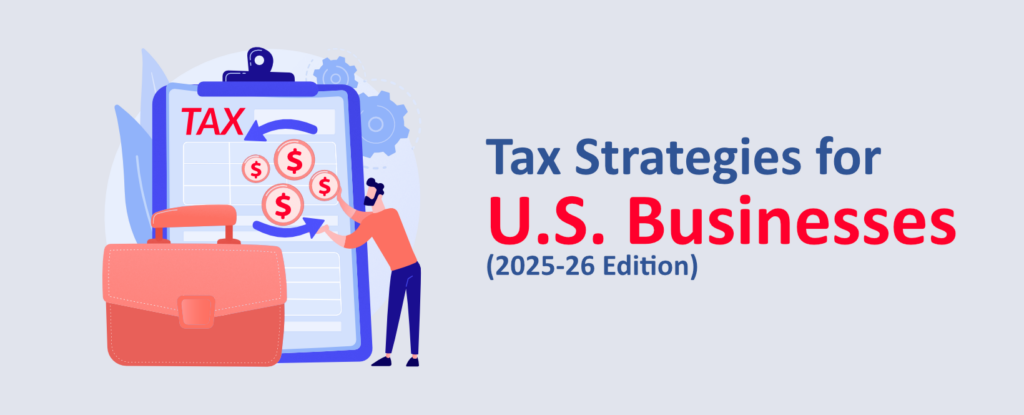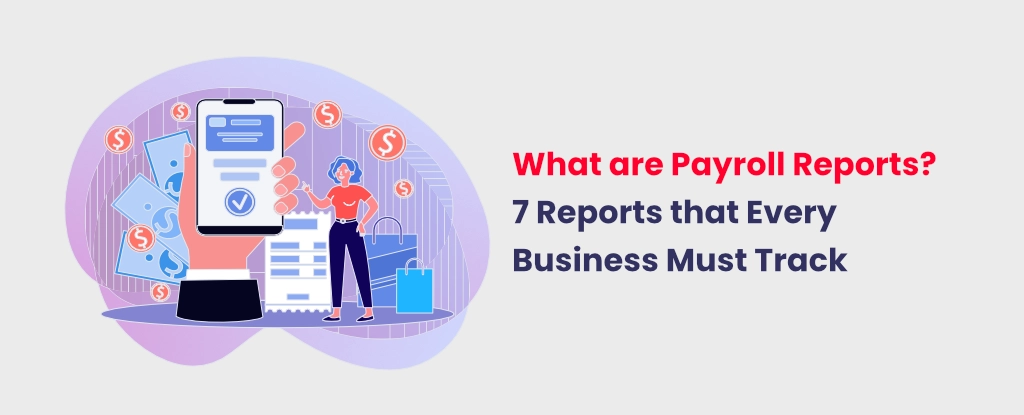When saving your tax bill, Tax Credits offer the easy way out. They are the financial rewards that the IRS provides to reward small businesses for their actions that benefit the community, support employees, or drive innovation.
Whether you’re hiring veterans, providing health insurance to employees, or investing in eco-friendly practices, there’s a tax credit to reward your efforts. These credits can significantly reduce your tax bill and put more money back into your business. However, understanding which credits apply to your business and how to claim them isn’t always straightforward. You need professional guidance from a certified tax expert and some knowledge to maximize your savings.
Here’s our list of various tax credits that your business might be eligible for. Keep it handy to ensure you save more on your tax bill!
What are Tax Credits?
Tax credits are financial incentives that directly reduce the amount of tax owed to the IRS. Unlike tax deductions that reduce your taxable income, tax credits reduce your tax bill dollar-for-dollar. However, to claim these credits, businesses must meet specific eligibility criteria and follow detailed IRS credits and deductions guidelines set for different tax credits.
Tax credits come in two main types:
1. Non-Refundable Tax Credits: These are the credits that reduce your tax liability up to $0 by the corresponding credit amount but will not result in a cash refund. These credits are valid only in the year of reporting and hence, not carried over to future years.
For example:
- Child and Dependent Care Credit covers expenses for child care, but only up to the amount of taxes owed.
- Lifetime Learning Credit provides up to $2,000 for qualified education expenses but cannot exceed your total tax liability.
2. Refundable Tax Credits: These credits are subtracted from Income tax liability and may result in a cash refund when credits exceed tax liability even if no tax is withheld.
For example:
- Earned Income Tax Credit (EITC) provides refunds to low-to-moderate-income individuals and families, often resulting in a cash refund even if no tax is owed.
- Premium Tax Credit helps to reduce health insurance costs and may result in a refund if the credit exceeds the owed tax.
How to Claim Business Tax Credits
For businesses claiming multiple credits, IRS Form 3800 needs to be filled. It consolidates all the credits into a general business credit. However, if only one credit is being claimed, it can be reported directly on your Income Tax Return Form 1040.
Calculating Your Tax Credit Limit
To determine the limit on tax credits, follow these steps:
1. Add the net income tax and alternative minimum tax.
2. Subtract any other allowable tax credits from this total to find the net income tax liability.
3. Deduct the greater of:
- The tentative minimum tax for the year, or
- 25% of the regular tax liability exceeding $25,000.
Unused business credits can be carried back to the previous year or carried forward for up to 20 years, following a first-in, first-out order.
The order is as follows:
- Carryforwards to that year, the earliest ones
- The general business credit earned in the year
- The carryback to that year
Tax Credits for Small Business Owners
Now let’s take a look at all the important income tax credits that can help you reduce your tax outgo, legally!
1. Work Opportunity Tax Credit
The Work Opportunity Tax Credit (WOTC) is a non-refundable federal tax credit that encourages businesses to hire individuals from certain underserved groups, including:
- Veterans
- Ex-felons
- Long-term family assistance recipients
- Long-term unemployed individuals
- Designated community residents
- Summer youth employees from federal empowerment zones
How it Works: The credit amount depends on several factors, including the eligible employee’s targeted group, wages, and number of hours worked. Generally, You can claim up to 40% of the first $6,000 of wages paid to eligible employees during their first year of employment. For veterans and certain other groups, the maximum credit can be even higher.
- Eligibility: To claim the Work Opportunity Credit, as a business owner, you need to ensure that your new hires meet specific criteria, which can vary depending on the target group. The new employee must work a minimum number of hours and must be part of a designated group eligible for the credit. The WOTC is set to expire on December 31, 2025, unless extended.
How to Claim: File Form 5884 along with your tax return to claim the credit. Keep all necessary documentation proving the eligibility of the employees for IRS review.
Credit for small business health insurance premiums (Form 8941) is for companies that provide small-business health insurance to their employees through a qualified health plan from the SHOP Marketplace, provided they meet certain qualifying conditions. A credit equal to 50% of employer-paid health insurance premiums during the first two consecutive years. This is a refundable credit, meaning that you may claim a tax refund even if you are tax-exempt or have no taxable income.
2. Employer Credit for Paid Family and Medical Leave
This fully refundable tax credit encourages businesses to support their employees by giving paid family and medical leave, subject to certain conditions. This includes offering wages and financial security to employees during critical life events, such as childbirth, accidents, serious health conditions, or other family-related needs.
How It Works: You can claim around 12.5% to 25% of wages paid to employees during their family or medical leave period.
Eligibility: To qualify, you must have:
a. A written policy offering at least two weeks of paid family and medical leave annually to all qualifying employees and
b. Paid at least 50% of the employee’s regular wages during the period.
How to Claim: Use Form 8994 to calculate and claim the credit and submit it along with your tax return. The credit is effective for wages paid in taxable years beginning after December 31, 2017, and before January 1, 2026.
3. Credit for Increasing Research Activities
Like most other Tax credits, this is a non-refundable tax credit. The credit incentivizes businesses and organizations to increase their research and development. The credit is available for expenses incurred on qualified research conducted in the US.
How It Works: Small businesses can apply up to $500,000 of their research credit to reduce their Social Security taxes.
Eligibility: R&D activities must be carefully documented with process diagrams, lab results, etc., to be able to claim this credit.
How to Claim: File Form 6765 to calculate and claim the R&D credit and attach it to your business tax return. Depending on your business’s size and financial situation, you may also be able to carry the credit forward for up to 20 years or backward to reduce prior tax liabilities.
4. Low-Income Housing Tax Credit
This non-refundable tax credit is a federal incentive program designed to encourage real estate developers to invest in affordable housing for low-income families. The amount of tax credit is determined by the number of low-income housing units the qualifying developer plans to build and is applied over a ten-year period after a building is placed in service.
How It Works:
- 9% Credit: This can only be used if the building project will have no other credits or government subsidies applied to it. Covers up to 70% of costs for new or major renovations over ten years.
- 4% Credit: Applies to federally subsidized projects, covering up to 30% of costs.
Eligibility: To qualify, projects must keep a certain percentage of units occupied by low-income tenants at capped rents for at least 15 years.
How to Claim: Developers can claim the credit annually for ten years by filing Form 8586 with their tax return.
5. Disabled Access Credit
This is a non-refundable tax credit provided to those qualifying small businesses that make their business accessible to customers and employees with disabilities by constructing ramps, accessible parking, Braille signage, and more. It encourages inclusivity and a sense of belonging.
Benefits: The credit covers 50% of expenses between $250 and $10,250, up to a maximum of $5,000.
Eligibility: Businesses either
a. With gross receipts of $1 million or less; or
b. Employed not more than 30 full-time employees during the preceding taxable.
How to Claim: This credit can be claimed by using Form 8826.
6. Credit for Employer-Provided Childcare Facilities and Services
This credit incentivizes small business owners who provide childcare facilities or pay their employees for childcare expenses.
Benefits: It is a non-refundable tax credit in which qualifying businesses can claim 25% of their expenditures on child care, plus 10% of childcare resource and referral expenditures. The maximum credit is limited to $150,000 per tax year.
How to Claim: The credit can be claimed by filing Form 8882.
7. Credit for Small Employer Pension Plan Startup Costs
This credit is meant to help lower the cost of setting up a retirement plan [SEP IRA, SIMPLE IRA, or 401(k)] by a qualifying small business for the employees.
Benefits: A credit of upto $5000 per year for three years can be claimed toward administrative costs incurred by the employer.
How to Claim: The credit can be claimed by filing Form 8881.
8. Credit for Employer Social Security and Medicare Taxes Paid on Certain Employee Tips
This IRS credit is given to employers, especially in the food and beverage industry, to recover some of the tax expenses they pay on employee tips.
Under this credit, only a portion of payment covering the tips can be claimed as a tax credit; full credit is available only if the employer is paying at least the 2007 federal minimum wage.
9. New Markets Credit
The New Market credit is again a non-refundable tax credit that is given to support small business that invest in Community Development Enterprises (CDEs) and Community Development Financial Institutions (CDFIs) – organizations that aid low-income communities. Examples of such projects include the construction and rehabilitation of educational facilities or community centers, hospitals and other health facilities, industrial facilities that create jobs, facilities that provide services to women, minorities, or other underserved communities, etc.
10. Alternative Motor Vehicles, Electric Vehicles, and Alternative Fuel Credits
These are non-refundable credits meant to encourage small businesses to use alternative energies by providing a range of individual tax incentives.
Eligibility and Benefits:
- Credits cover a variety of clean-energy initiatives, including:
- Credit amounts vary by type and cover portions of the purchase or installation costs of alternative fuel equipment or vehicles.
It’s Time to Minimize Your Tax Bill
Tax credits help small businesses directly reduce their tax payable while positively contributing toward the community. However, tracking and applying for the right credits can be complex. That’s why, is important to partner with professional tax consultants at KnowVisory. By carefully reviewing your expenses and activities, they can help you identify and file for all the eligible credits, helping you maximize your savings and minimize your tax liability.
Get in touch with KnowVisory’s expert tax consultants today to exploit every tax benefit available to your business!


